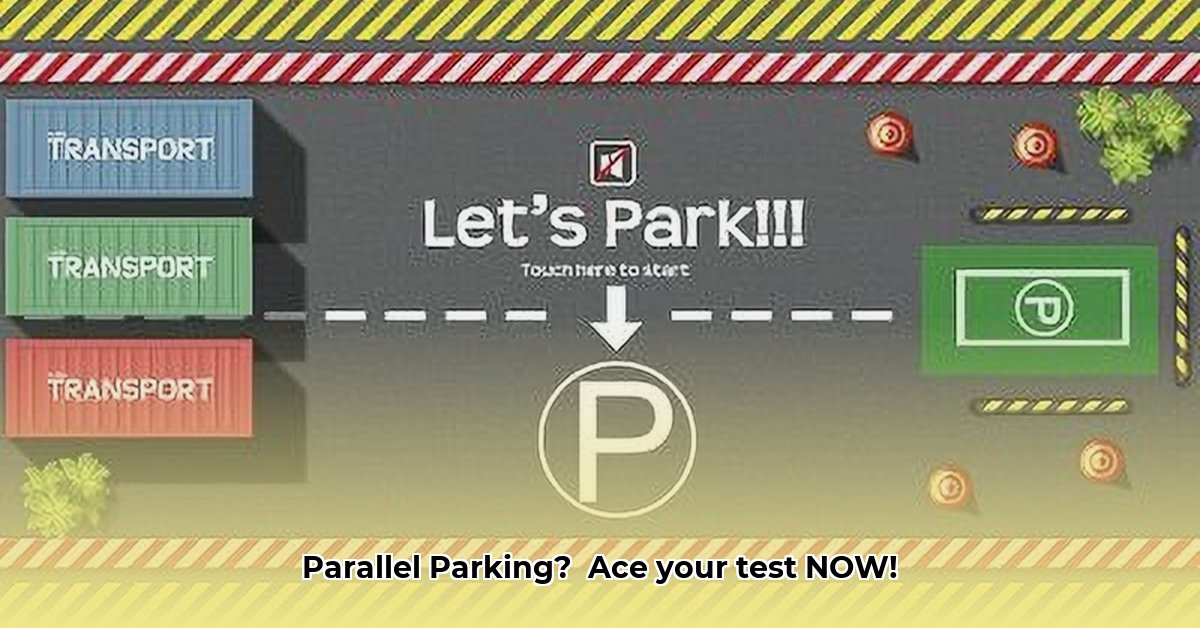
Learning to parallel park is a rite of passage for new drivers, often a source of significant stress. But what if you could master this crucial skill in a pressure-free environment? Online parallel parking games offer a fun and potentially effective solution. This review compares two popular options – Drivers Ed Direct and PPS! Parallel Parking Simulator – examining their gameplay, features, user experience, and overall effectiveness. We’ll also explore the broader context of driver education and the future of virtual driving training.
Parallel Parking Simulators: A Detailed Comparison
Two leading contenders dominate the parallel parking game arena: Drivers Ed Direct and PPS! Parallel Parking Simulator. Both aim to improve driving skills, but their approaches differ significantly.
Gameplay: From Casual to Realistic
Drivers Ed Direct offers a welcoming, almost cartoonish approach. The graphics are simple, the controls intuitive, and the learning curve gentle. It's ideal for easing into the mechanics of parallel parking without intimidation. Think of it as your friendly neighborhood driving instructor.
In contrast, PPS! Parallel Parking Simulator delivers a highly realistic experience. The detailed graphics, precise controls, and challenging parking scenarios reflect the complexity of real-world parking, particularly in busy urban areas. This game is your intense boot camp – challenging but highly rewarding upon mastery. This difference in realism profoundly impacts the user experience and potential effectiveness.
| Feature | Drivers Ed Direct | PPS! Parallel Parking Simulator |
|---|---|---|
| Graphics | Cartoonish, simplistic | Realistic, detailed |
| Controls | Simple, intuitive | Complex, precise |
| Difficulty | Easy, gradually increasing | Challenging, realistic tight spaces |
| Feedback | Positive reinforcement, encouraging | Detailed, analytical feedback |
| Learning Curve | Gentle | Steep |
Features: Beyond the Basics
Both games go beyond simple parking maneuvers. Drivers Ed Direct utilizes positive reinforcement, rewarding successful attempts with encouraging messages and sounds. This boosts confidence, especially beneficial for anxious beginners. Progressive difficulty levels ensure a steady challenge as skills improve.
PPS! offers detailed scoring and analytical feedback, pinpointing areas for improvement. This precision feedback is invaluable for refining technique but can be initially overwhelming for newcomers. The ability to repeatedly attempt scenarios allows for focused practice and mastery of specific challenges. Are these features enough? Further research into user performance data is crucial.
User Experience: Fun vs. Frustration
User reviews reveal a strong positive sentiment towards Drivers Ed Direct. Its accessibility and enjoyable learning experience make it a popular choice for beginners. Many appreciate the low-pressure, fun approach.
PPS! receives mixed reviews. While experienced players praise its realism and the satisfying challenge, some beginners find the high difficulty and detailed feedback initially frustrating. This mirrors the real-world experience of parallel parking; challenging, yet deeply rewarding upon success. This difference in player experience highlights the importance of matching the game to the user's skill level and learning style. Do these feelings translate into actual skill improvement? This is a key question that requires further research.
Effectiveness: Virtual Practice and Real-World Skills
The ultimate question: do these games translate to improved real-world parallel parking skills? While definitive empirical evidence is lacking, both games offer valuable practice in a safe and controlled environment.
Drivers Ed Direct, with its emphasis on positive reinforcement and gradual difficulty, likely excels at building confidence and fundamental skills amongst beginners. PPS!, due to its realism and detailed feedback, may be more effective for those seeking to master advanced techniques and handle challenging scenarios. However, the lack of empirical data highlights the need for more rigorous studies comparing virtual training to traditional in-person instruction.
Target Audience: Finding Your Perfect Fit
Drivers Ed Direct is perfect for beginners, nervous drivers seeking a supportive learning environment or those who prefer less intensive, fun training.
PPS! is better suited for experienced learners who thrive on challenges, desire a realistic simulation, and value detailed analytical feedback. It's for those seeking to hone their skills to a high degree of precision. Choosing the right platform is crucial for optimizing the learning process.
The Verdict: Choosing Your Parking Path
There is no single "best" game; the optimal choice depends entirely on individual learning styles and skill levels. Drivers Ed Direct provides a lighthearted, encouraging introduction to parallel parking, while PPS! offers an immersive, challenging experience for more advanced learners. Both, however, represent valuable additions to the virtual driver education landscape, offering unique pathways to mastering this essential driving skill. Supplementing virtual practice with real-world driving lessons remains crucial.
The Future of Virtual Driver Education
The future of virtual driver training is bright, with promising developments on the horizon. VR and AR integration offer heightened immersion, more sophisticated simulations and adaptive learning systems can personalize the learning experience, potentially leading to even more effective training. However, regulatory frameworks will need to adapt to ensure the safety and efficacy of these innovative technologies. What limitations on these advancements must be addressed to maximize safety and effectiveness? Future research should address these points.
⭐⭐⭐⭐☆ (4.8)
Download via Link 1
Download via Link 2
Last updated: Monday, May 19, 2025